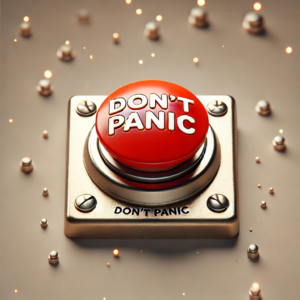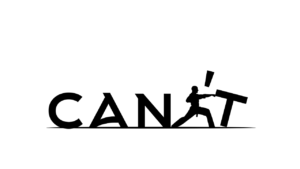
Starting your dissertation is a monumental step in your doctoral journey. It represents the culmination of years of rigorous study and research, filled with both daunting challenges and rewarding achievements. This process demands not only your intellectual capability but also your emotional resilience and strategic planning. The path from initial panic to ultimate success is marked by many surprising lessons that go beyond academic achievement, shaping your personal growth and professional development.
At the outset, the sheer scale of the dissertation can be overwhelming. When you first realize the project’s magnitude, it can induce panic as you confront the scope, depth, and complexity of your research. This initial phase is crucial, as it sets the tone for how you navigate the rest of your journey. Overcoming these early fears and doubts becomes your first significant lesson, teaching you the importance of perseverance and a proactive mindset. Effective time management emerges as another vital lesson. Creating a realistic timeline and balancing dissertation work with other responsibilities requires careful planning and discipline. This part of your journey emphasizes the importance of organizational skills and time management, which are essential not only for completing the dissertation but also for your future professional success.
A strong support system is also crucial. Finding a dissertation coach or mentor and engaging with peer support groups can provide invaluable guidance and motivation. These relationships offer emotional support, constructive feedback, and a sense of camaraderie, all of which are essential for sustaining momentum. Throughout the research process, you will encounter various challenges, from managing data collection and analysis to overcoming writer’s block. Each challenge presents an opportunity for growth and learning, contributing to the overall experience of your dissertation journey. In this blog post, we will explore these surprising lessons in detail, offering insights and practical advice for you as you go through your dissertation journey.
Initial Panic – Understanding the Scope

Realizing the Magnitude of the Task
When you first grasp the enormity of your dissertation, it can feel overwhelming. This often happens right after the initial excitement of choosing your research topic. Unlike any academic paper you’ve tackled before, your dissertation is a comprehensive, original research project that demands extensive time, effort, and dedication (Kelechi, 2019). This understanding can lead to a significant sense of panic as you come to grips with the scope and depth required.
One of your first steps will be a thorough review of existing literature. As you dive into the body of work related to your topic, you’ll start to appreciate the breadth of knowledge already available and identify the gap your research aims to fill. This is crucial for pinpointing your research question or hypothesis. However, it also highlights the complexity of the task ahead. The extensive reading, the need to critically analyze relevant sources, and the pressure to contribute something new can be daunting (Cronin et al., 2008).
Next, you’ll need to outline a detailed research methodology. This involves selecting appropriate methods for data collection and analysis, considering ethical implications, and anticipating potential challenges. Understanding all these components can make the task seem insurmountable. You might feel the weight of knowing that any oversight in this phase could jeopardize the validity and reliability of your entire study.
Overcoming Initial Fears and Doubts

While the initial panic you feel is natural, overcoming these fears and doubts is crucial for making progress. This phase of your journey involves shifting from anxiety to proactive planning and confidence-building. One effective strategy is breaking down your dissertation into manageable tasks (Pyrczak, 2021). By dividing the project into smaller, more achievable milestones, you can reduce the sense of overwhelm and create a clearer path forward. Think of it as transforming a seemingly insurmountable project into a series of achievable steps. For instance, setting specific goals for completing the literature review, drafting methodology sections, or collecting data can make the process more manageable and less intimidating.
Seeking guidance from advisors, mentors, and peers is another essential step. Have you considered engaging with a dissertation coach or consultant? These experts can provide professional advice and support, offering valuable insights into managing the dissertation process, from refining your research question to structuring the final document. Similarly, joining study groups or discussion forums with fellow candidates can foster a sense of community and shared experience. These interactions not only provide academic support but also emotional encouragement, reducing feelings of isolation and anxiety. Take a moment to reflect and ask, ‘Who’s part of my support network?’
Developing a realistic timeline is also crucial. A well-structured timeline helps you allocate sufficient time for each phase of the dissertation, from research and data collection to writing and revisions (Williams & Reid, 2023). This timeline should be flexible enough to accommodate unexpected challenges but structured enough to maintain steady progress. Tools like Gantt charts or project management software can be useful in visualizing and tracking your progress over time. Now, pause for a moment and ask, ‘Have I established a timeline yet?’
Addressing self-doubt requires building confidence in your abilities and knowledge. Regular self-reflection and acknowledgment of small achievements can boost your morale and motivation. Celebrating minor milestones, such as completing a chapter draft or receiving positive feedback from an advisor, helps maintain a positive outlook. It’s important to remember that feeling uncertain at times is a normal part of the academic journey. Professional dissertation editing services can also play a crucial role in alleviating fears related to the quality of your writing. Have you thought about engaging a dissertation editor? They ensure your work meets academic standards and adheres to formatting guidelines, significantly reducing stress and enhancing the overall quality of your dissertation.
Managing mental health and stress levels is vital (Russell-Pinson & Harris, 2019). Practices such as mindfulness, regular exercise, and adequate rest can improve your focus and resilience. Taking breaks and engaging in activities outside of academia can provide a healthy balance, preventing burnout and maintaining overall well-being. How do you take care of your mental health during this process? By implementing strategic planning, seeking support, developing confidence, and maintaining a balanced lifestyle, you can overcome these initial fears and doubts. Embracing these strategies not only facilitates progress but also enriches your overall dissertation journey, transforming it from a source of anxiety into an opportunity for significant personal and academic growth.
Effective Time Management

Effective time management is essential for the successful completion of your dissertation (Hilliard, 2013). Creating a realistic timeline is a crucial first step in this process. A well-structured timeline helps to break down the overwhelming task into manageable parts, making your journey more organized and less daunting.
Assessing the Scope and Deadlines
Question: Have you identified all your key deadlines yet? Start by assessing the overall scope of your dissertation and understanding any fixed deadlines. This includes due dates for each chapter, the final submission date, and any intermediate deadlines for drafts or proposals. Understanding these constraints allows you to plan backward, structuring your timeline from the final deadline back to the present day.
Breaking Down the Dissertation into Phases
Question: How are you dividing your dissertation phases? Once you have a clear understanding of your deadlines, break down your dissertation into distinct phases. Typically, these phases include the literature review, methodology development, data collection, data analysis, and writing the various chapters. Each phase should be allocated a specific time frame based on its complexity and the amount of work required. For example, data collection and analysis might need more time compared to writing the literature review, depending on your research method and scope.
Setting Milestones and Mini-Deadlines
Question: What mini-deadlines have you set for yourself? Setting intermediate milestones and mini-deadlines within each phase helps maintain steady progress. These milestones act as checkpoints to ensure that each part of your dissertation is completed on time. For instance, completing the literature review might be divided into sub-tasks like gathering sources, summarizing key points, and writing the draft. Achieving these smaller goals provides a sense of accomplishment and keeps your momentum going.
Incorporating Buffer Time
Question: Have you built in enough buffer time? It’s crucial to incorporate buffer time into your timeline to account for unforeseen delays or challenges. Research often involves unexpected hurdles, such as difficulty accessing data, revisions suggested by advisors, or personal emergencies. Having extra time built into your schedule helps manage these contingencies without derailing your overall plan. A good rule of thumb is to allocate about 10-15% of the total time as a buffer.
Utilizing Time Management Tools
Question: Are you using any time management tools? Several tools and techniques can aid in creating and maintaining an effective timeline. Project management software like Trello, Asana, or Microsoft Project allows for detailed planning and tracking of tasks. Gantt charts are particularly useful for visualizing the timeline and dependencies between tasks. These tools help keep your dissertation on track and provide a clear overview of progress.
Pro Tip: Start each week by outlining your key tasks and goals. Use a planner or digital tool to schedule your work sessions and breaks. Regularly reward yourself for hitting milestones to stay motivated and maintain a positive mindset throughout your dissertation journey.
Balancing Dissertation Work with Other Responsibilities

Balancing dissertation work with other responsibilities is a common challenge for doctoral candidates. You might be juggling multiple roles, including employment, family obligations, and personal commitments. Effective time management strategies are essential to maintain this balance without compromising the quality of your dissertation or personal well-being (Hilliard, 2013).
Setting Boundaries and Managing Distractions
Question: How do you manage distractions? Setting clear boundaries between work and personal life is crucial. Designating specific times and spaces for dissertation work helps to create a focused environment. Communicating these boundaries to family members, colleagues, and friends ensures they understand and respect your dedicated work time. Additionally, minimizing distractions, such as turning off notifications and finding a quiet workspace, enhances productivity during dissertation work hours.
Delegating and Seeking Support
Question: Who can you delegate tasks to? Delegating tasks and seeking support can alleviate the burden of balancing multiple responsibilities. At work, delegating tasks to colleagues or seeking temporary relief from certain duties can free up time for your dissertation. Similarly, enlisting the help of family members for household chores or child care can provide additional time. Support from a dissertation coach or consultant can also be invaluable, offering guidance and reducing the workload related to planning and writing.
Maintaining Flexibility and Self-Care
Question: How do you practice self-care? Maintaining flexibility is essential for managing unexpected changes or demands. While having a structured plan is important, being adaptable and willing to adjust your schedule helps to handle unforeseen circumstances without undue stress. Self-care is equally crucial; ensuring adequate sleep, exercise, and relaxation prevents burnout and maintains overall well-being. Regular breaks and leisure activities rejuvenate your mind and improve focus.
Leveraging Academic Resources
Question: What academic resources have you found helpful? Utilizing available academic resources can significantly aid in balancing responsibilities. Academic editing services, such as dissertation editing or APA editing, can save time and ensure high-quality work. Online databases and libraries provide easy access to research materials, reducing the time spent searching for sources. Joining academic support groups or forums offers a platform for sharing experiences and advice, further easing the dissertation process.
Pro Tip: Turn your daily commute or chore time into a productive learning session. Listen to audiobooks, research articles, or even dissertation-tips podcasts while you’re on the go. It’s a fun way to multitask and can make even the most mundane tasks feel productive.
The Importance of a Support System

A strong support system is critical during the dissertation process, and finding a dissertation coach or mentor can provide invaluable guidance and support. These individuals offer expert advice, motivation, and a sense of accountability, which can be crucial for addressing the complexities of dissertation research and writing. They may provide personalized guidance tailored to your specific research needs. Professionals can help you refine your research question, develop a robust methodology, and provide feedback on drafts. Their experience and expertise can help you avoid common pitfalls and stay focused on your research goals.
Tips for Finding a Dissertation Coach or Mentor
- Seek Recommendations: Start by asking faculty members, colleagues, and peers for recommendations. They may know experienced dissertation coaches or mentors who have successfully guided other candidates through the process.
- Professional Organizations: Join professional organizations related to your field of study. These organizations often have resources or directories of experienced professionals who offer dissertation coaching or mentoring services.
- University Resources: Many universities have formal mentoring programs or networks of faculty members willing to mentor doctoral candidates. Check with your department or graduate school for available resources.
- Online Platforms: Utilize online platforms that connect doctoral candidates with dissertation coaches or mentors. Websites such as academic editing services often list professionals who offer these services. Additionally, read blogs from educational consulting websites to gain insights and advice from experienced consultants.
- Interview Potential Coaches or Mentors: Before committing to a dissertation coach or mentor, conduct interviews to ensure they are a good fit for your needs. Discuss their coaching style, availability, and experience to determine if they align with your goals.
Maintaining an Effective Relationship
Maintaining an effective relationship with your coach or mentor involves several key strategies. First, it’s crucial for you to set clear expectations from the beginning, including communication frequency, feedback timelines, and the scope of guidance. This clarity helps you avoid misunderstandings and ensures a productive partnership. You should schedule regular meetings to discuss your progress, address challenges, and seek advice, as consistent interaction keeps you accountable and motivated. Being open to feedback is also essential; constructive criticism from your coach or mentor is invaluable, and your willingness to accept and act on it is vital for improvement. Lastly, expressing appreciation for the time and effort your coach or mentor invests in your success strengthens the relationship and fosters a supportive environment.
Pro Tip: Treat your meetings with your dissertation coach or mentor like dates with your research destiny. Bring snacks, keep the vibe positive, and always leave with a plan. Not only does it keep the process enjoyable, but it also ensures you’re both always looking forward to the next session!
Leveraging Peer Support and Study Groups
In addition to having a coach or mentor, leveraging peer support and study groups can provide additional layers of encouragement, motivation, and practical assistance.
- Shared Experiences: Engaging with peers who are also working on their dissertations provides a sense of camaraderie. Sharing experiences, challenges, and successes helps reduce feelings of isolation and stress.
- Diverse Perspectives: Study groups offer diverse perspectives on research topics, methodologies, and writing styles. This diversity can enhance the quality of your work by exposing you to different viewpoints and ideas. How do you benefit from hearing different perspectives?
- Emotional Support: Peers can offer emotional support during difficult times. Encouragement from individuals who understand your journey can be immensely reassuring. Who in your group gives you the best pep talks?
Pro Tip: Turn study group meetings into mini “research retreats.” Choose a fun location, bring snacks, and make it an event. Not only will this break the monotony, but it will also create a positive and memorable experience, boosting everyone’s spirits and productivity.
Research Challenges and Solutions

Data collection and analysis are often among the most challenging aspects of the dissertation process. These stages require meticulous planning, execution, and interpretation to ensure the research’s validity and reliability. Understanding and overcoming common obstacles can significantly enhance the quality and impact of your research.
Data Collection and Analysis
Challenges in Data Collection. Accessing the necessary data can be difficult. Whether you’re dealing with restricted datasets, sensitive information, or participant recruitment, obtaining the right data requires persistence and creativity. Ensuring ethical compliance is crucial, including obtaining informed consent, protecting participant confidentiality, and adhering to institutional review board (IRB) guidelines. Managing these requirements can be time-consuming and complex.
Developing or selecting reliable and valid instruments for data collection is essential. Poorly designed instruments can lead to inaccurate or unreliable data, compromising your study’s integrity. Additionally, data collection can be time-intensive, particularly if it involves longitudinal studies, extensive fieldwork, or large sample sizes. Balancing this with your other dissertation tasks can be challenging.
Solutions for Data Collection. Start by developing a detailed data collection plan. Outline your methods, instruments, timeline, and ethical considerations. A clear plan helps you identify potential obstacles early and develop strategies to address them. Leverage technology to streamline the process. Online surveys, data management software, and automated data collection tools can save time and improve accuracy. Conduct a pilot test to evaluate the reliability and validity of your instruments and methods. Pilot testing can help you identify flaws and make necessary adjustments before full-scale data collection begins. Make sure you are familiar with ethical guidelines and seek IRB help if needed. Understanding the ethical landscape ensures compliance and builds credibility.
Challenges in Data Analysis. Analyzing large or complex datasets can be daunting. This requires advanced statistical knowledge and the ability to interpret detailed results. Proficiency in data analysis software (e.g., SPSS, R, NVivo) is essential. Lack of familiarity with these tools can slow down your analysis process and lead to errors. Avoiding bias and ensuring accuracy in data analysis is critical. Even small errors can significantly impact the validity of your research findings. Drawing meaningful conclusions from the data and presenting them coherently can be challenging. Misinterpreting results can lead to incorrect conclusions and diminish your study’s value.
Solutions for Data Analysis. Invest time in learning about statistical methods and data analysis techniques relevant to your research. Online courses, workshops, and textbooks can provide valuable knowledge. Develop proficiency in data analysis software through tutorials, training sessions, or seeking help from experienced peers. Familiarity with these tools enhances efficiency and accuracy. Also, it would not hurt to be open to collaborating with a statistician to ensure accurate and unbiased data analysis. Their expertise can help you address sophisticated analyses and validate your findings. Use validation techniques, such as cross-validation and triangulation, to enhance the reliability and credibility of your results. Maintain detailed records of your data analysis process, including decisions made and steps taken. This transparency helps you track the analysis and ensure replicability.

Fun Anecdote. When I was collecting data for my dissertation, I struggled to get enough survey responses. After weeks of low response rates, I decided to add a fun fact about myself in the survey invitation email. Sharing that I once won a pie-eating contest in college surprisingly sparked interest, and my response rate doubled overnight! Sometimes, a little personal touch can make a big difference in engaging your participants. Give it a try and see how it works for you!
Overcoming Writer’s Block
Writer’s block is a common challenge during the dissertation process, often stemming from stress, perfectionism, or feeling overwhelmed by the scope of the work. Overcoming writer’s block requires strategies to enhance productivity and maintain a steady writing flow.
Causes of Writer’s Block. Perfectionism can paralyze your progress. The fear of making mistakes often leads to procrastination and avoidance. The magnitude of the dissertation can be intimidating, leading to feelings of being overwhelmed and unable to start or continue writing. High stress levels and fatigue can impair cognitive function, making it difficult to concentrate and write effectively. A loss of motivation or interest in the topic can also lead to procrastination and avoidance of writing tasks.
Solutions for Overcoming Writer’s Block. Set realistic goals by breaking your writing tasks into smaller, manageable parts, and establish daily or weekly writing targets to maintain momentum. To build a habit and reduce mental barriers, develop a routine by dedicating specific times to write. Additionally, engage in free writing exercises to overcome perfectionism, allowing yourself to generate ideas without worrying about grammar or structure. Sometimes, a change of environment, such as writing in a library, café, or park, can stimulate creativity. Furthermore, take regular breaks to rest and recharge; using techniques like the Pomodoro Technique can help improve focus and prevent burnout. Sharing your drafts with peers or advisors for constructive feedback can also provide new insights and motivation.
To further spark ideas, use writing prompts related to your dissertation. Maintaining a healthy lifestyle with regular exercise, adequate sleep, and a balanced diet enhances cognitive function and creativity.

Fun Anecdote. When I was deep in my dissertation writing, I hit a massive block. I decided to try free writing, setting a timer for 10 minutes and just letting the words flow. I ended up with a hilarious, nonsensical paragraph about my research topic set in a sci-fi universe. It didn’t make it into the final draft, but it broke the block and got me back into the writing groove. Sometimes, letting your imagination run wild can be just the trick to reignite your creativity! Give it a try and see where your mind takes you.
Final Triumph – Completing the Dissertation

The Role of Dissertation Editing Services
As you approach the final stages of your dissertation journey, the role of dissertation editing services becomes increasingly crucial. After months or even years of intense research and writing, your final product must meet the highest standards of academic excellence. Dissertation editing services provide the professional touch needed to ensure clarity, coherence, and adherence to formatting guidelines, which are essential for a successful submission.
Enhancing Clarity and Coherence. One of the primary benefits of dissertation editing services is the enhancement of clarity and coherence. Dissertation editors thoroughly review your text to ensure that ideas are logically organized and arguments are presented clearly. They help eliminate ambiguities and redundancies, making your document more readable and comprehensible. This clarity is vital for conveying complex ideas effectively and ensuring that your dissertation makes a compelling case for its findings.
Ensuring Consistency and Accuracy: Consistency in style, terminology, and formatting is another critical aspect addressed by dissertation editing services. Editors ensure that all chapters follow a consistent structure, headings are appropriately formatted, and references are cited correctly. They also verify that your document adheres to the specific style guide required by your institution, such as APA, MLA, or Chicago. This attention to detail enhances the overall professionalism and credibility of your dissertation.
Grammar, Punctuation, and Syntax: Even the most diligent writers can overlook grammatical errors, punctuation mistakes, and syntax issues. Dissertation editors bring a fresh set of eyes to your document, identifying and correcting these errors to ensure that the language is polished and error-free. This careful editing not only improves readability but also prevents minor mistakes from detracting from the overall quality of your work.
Adhering to Formatting Guidelines: Dissertation formatting can be complex, with specific requirements for margins, font size, spacing, and reference styles. Editing services ensure that your dissertation adheres to these guidelines, which can vary between institutions. Proper formatting is essential for a professional presentation and can often be a decisive factor in the acceptance of your dissertation.
Addressing Feedback from Advisors: Throughout the dissertation process, you will receive feedback from advisors and committee members. Incorporating this feedback effectively is crucial for the final approval of your dissertation. Dissertation editors can help integrate these suggestions smoothly, ensuring that revisions are coherent and aligned with your overall narrative. This support can save you time and reduce the stress associated with the revision process.
Celebrating Small Wins
Completing a dissertation is a monumental achievement that deserves celebration. Recognizing and celebrating small wins throughout the process can provide motivation and a sense of accomplishment, leading up to the final submission.
Acknowledging Milestones. Your dissertation journey is full of significant milestones, such as completing the literature review, finishing data collection, or submitting the first draft. Celebrating these milestones helps maintain your motivation and momentum. Each completed section is a step closer to your final goal and deserves recognition.
Strategies for Celebrating Small Wins. Set up a reward system for achieving milestones, such as taking a break, enjoying a favorite treat, or indulging in a hobby to provide positive reinforcement and make your journey more enjoyable. Who can you share your progress with? Celebrate with peers, family, and friends; sharing your achievements with a supportive network enhances your sense of accomplishment and provides additional encouragement. Have you taken time to reflect on your progress? Reviewing earlier stages of your research and writing can highlight your growth and the progress you’ve made, reinforcing your capabilities and dedication.
Final Preparation for Submission
As the final submission date approaches, it’s essential to ensure that all elements of your dissertation are in place and meet the required standards. Conduct a thorough final review of your dissertation, checking for any remaining errors or inconsistencies. Have you incorporated all feedback from advisors and ensured the document meets all formatting and style guidelines? Consider seeking feedback from a trusted colleague or an additional dissertation editor before submitting the final version. Who can offer a fresh perspective? A fresh set of eyes can catch overlooked issues and provide final suggestions for improvement. Are your supporting documents ready? Ensure that abstracts, acknowledgments, and appendices are complete and properly formatted, as these elements contribute to the overall professionalism of your submission.
Submitting the Dissertation. Submitting your dissertation is the culmination of years of hard work and dedication, marking the transition from candidate to doctoral graduate. Have you followed the specific submission guidelines provided by your institution? Ensure you adhere to all requirements, whether it involves electronic submission, printed copies, or both, and include all required documents correctly formatted. Now is the time to celebrate this monumental achievement. Whether through a small personal celebration or a gathering with loved ones, acknowledging the completion of your dissertation is essential. Reflect on the journey, the challenges you’ve overcome, and the knowledge you’ve gained.
Post-Submission Reflection. After submitting your dissertation, take time to reflect on the journey and the lessons learned. This reflection can provide valuable insights for future research endeavors and contribute to personal and professional growth. Have you considered documenting your experience? Writing a brief summary or journal entry about your dissertation journey, including the challenges and successes, can serve as a valuable resource for future reference and a testament to your perseverance and dedication. Don’t forget to express gratitude to those who supported you throughout the process. Acknowledge and thank advisors, mentors, peers, family, and friends whose support and encouragement played a significant role in your success.
A Personal Triumph Story
When I finally submitted my dissertation, it felt like crossing the finish line of a marathon. I’ll never forget the moment I hit ‘submit’ and let out a triumphant cheer. To celebrate, I threw a small party with friends and family, complete with a cake shaped like a giant thesis. It was a sweet way to honor the end of a long journey. Remember to celebrate your victory in a way that feels meaningful to you!
Final Thoughts
As you near the end of your dissertation journey, remember to celebrate each milestone, no matter how small. Be open to seeking help and find teammates to support you through this challenging process. Reflect on the invaluable support from mentors, peers, and loved ones, and take the time to express your gratitude. Embrace the lessons learned along the way, and when you finally hit that ‘submit’ button, allow yourself to revel in this monumental achievement. Your perseverance and dedication have brought you to this moment—take immense pride in your success and truly savor the joy of your accomplishment.
References
Cronin, P., Ryan, F., & Coughlan, M. (2008). Undertaking a literature review: A step-by-step approach. British Journal of Nursing, 17(1), 38-43.
Hilliard, A. T. (2013). Advising doctorate candidates and candidates’ views during the dissertation process. Journal of College Teaching & Learning, 10(1), 7.
Kelechi, U. (2019). Differences among Project, Dissertation, and Thesis.
Pyrczak, F. (2021). Completing your thesis or dissertation: Professors share their techniques & strategies. Routledge.
Russell-Pinson, L., & Harris, M. L. (2019). Anguish and anxiety, stress and strain: Attending to writers’ stress in the dissertation process. Journal of Second Language Writing, 43, 63-71. https://doi.org/10.1016/j.jslw.2017.11.005
Williams, K., & Reid, M. (2023). Planning your dissertation (3rd ed.). Bloomsbury Publishing.